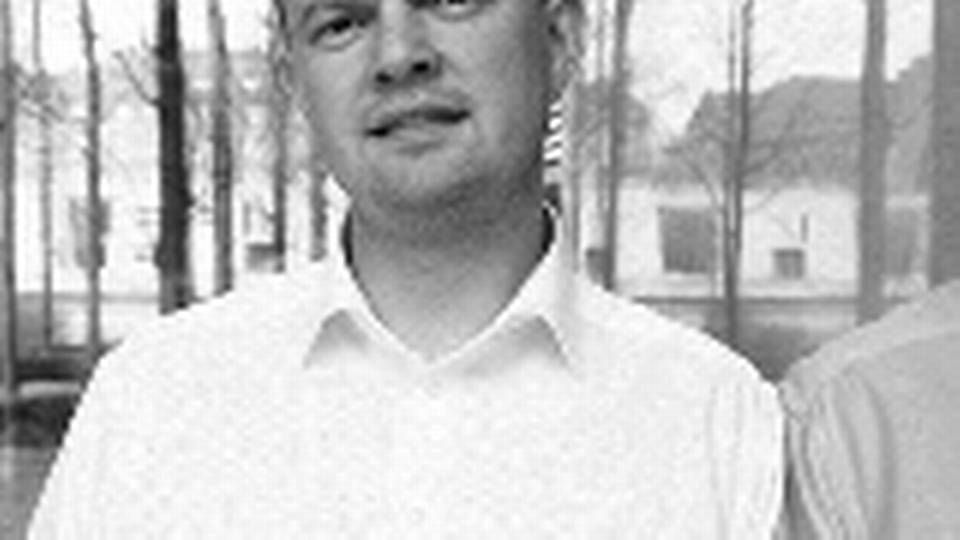"It’s almost like being part of a little family"

What career path did you envision for yourself when you were younger?
I took a somewhat untraditional path through the system – I have no university degree. After I finished my Higher Commercial Examination Program, I started thinking about what I really wanted to do in the future. I was always fascinated by the financial world, maybe because my father also worked in a bank, so I began examining my options in the field. I sent an application to AP Møller, but I got a job at a Nordea unit instead. I was there for two years, working with overdraft facilities and giro forms, but I really wanted to be in the business field because I found it very interesting. I finally ended up in Nordea's trade unit. So it has, for several reasons, been coincidental that I ended up here.
What was it about the financial world that fascinated you?
Financial companies are very central in our society, but at the same time it is like a large animal that is difficult to attack if you are not already part of it. The financial world is, for example, part of the reason that we can transfer excess liquidity from AP Møller's treasury unit to the average Dane who who needs to buy a new bike. That is very fascinating to me – even though it is difficult to see from the outside.
Which part of your CV represents the biggest change in your career, and what led to it?
In 2007 I was offered the job as Head of Credit at Nordea Markets, which came somewhat out of the blue. After the bankruptcy of Lehman Brothers and the subsequent financial crisis, a lot of new regulations came along, and we reached our limit for working conditions. That made me consider whether this was where I wanted to work for the rest of my life. But then I received the inquiry from Asset Management, which I actually had on my list of fields I'd like to explore. I was made responsible for our Credit Investments unit in 2011, and I held the position until 2015 when I was made Head of Fixed Income. But the biggest change in my career happened in May this year. I went from being responsible for 70 people to now being on a team of four people with no hierarchy. Today I work much more with data and technology than I did before, and the shift has forced me to reflect of things a lot – for example on paying less attention to prestige and following my heart towards what I really want.
What fascinates you about data and the more technical side of things
I think what really fascinates me is adopting data and technology into our investment fields to use as assistive technology. I would like to create an artificial intelligence which, based on statistical exercises and large or skewed data sets, will ultimately give us a tool to help us decide which way to choose. In order to achieve this, I have put together a very unusual investment team. Instead of exclusively hiring accountants and economists, I've also hired some statisticians and mathematicians for the team. So my new team is 25 percent field experts, 25 percent data engineering, and 50 percent data science statisticians.
What does it mean for you to be on such a small team compared to before?
It is almost like being part of a small family because we complement each other in our work. I'm very dependent on the others and they are dependent on me. We all need to be there in order for things to work best. This gives all four of us a feeling of ownership and responsibility, creating a certain intimacy. We aim to reach a point where we can work together seamlessly, and that kind of teamwork is very good for me.
What part of your education has been most useful to you in your work?
A few years ago I took a basic course in gestalt therapy. This kind of therapy focuses on the process rather than the goal, and it has a very reflexive approach to work. This kind of falls outside the category of the typical financial world, but I have used it a lot – both in my personal life and my work life.
Which leader in the field has inspired you the most?
I think Elon Musk is inspiring. He's not a financier, but he works with technology and artificial intelligence like I do myself. Musk has a go-getter attitude, and he always finds a way. For example when he decided that we were going to Mars and building a colony there. And his first step was, of course, to build a rocket, so he finds a manual and begins reading it. His approach to challenges is very inspiring because he is such a visionary.
English Edit: Marie Honoré













